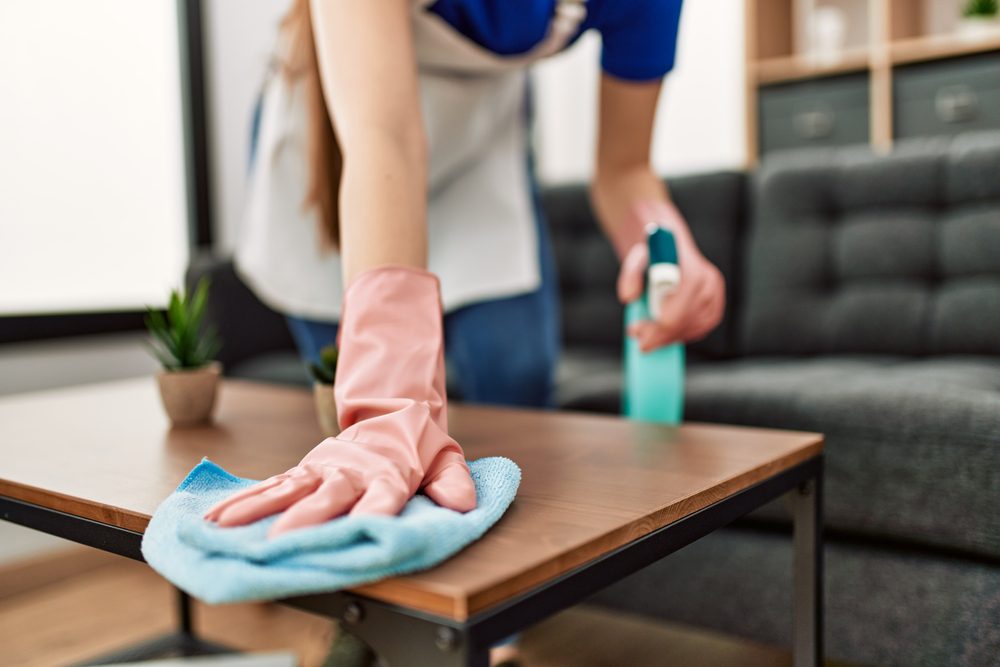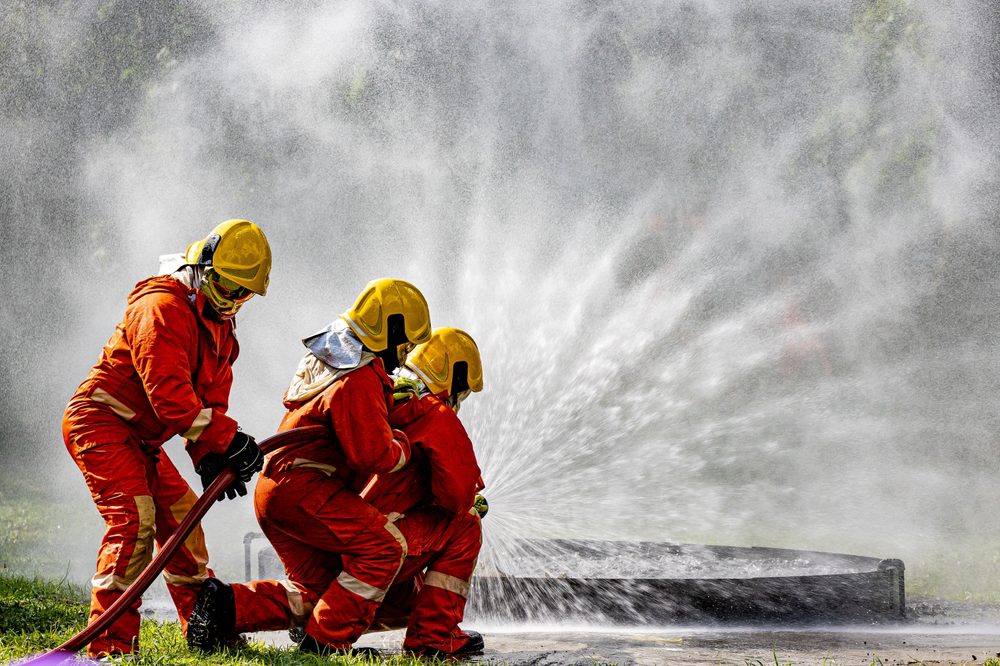Do you suffer from COPD? Stay away from these jobs!
What does COPD have to do with our jobs, right? Well, let’s understand better first what exactly is COPD.
COPD is short for chronic obstructive pulmonary disease, which is a chronic inflammatory lung disease that is responsible for creating obstructed airflow from the lungs. Some of its symptoms include breathing difficulty, cough, mucus production, and even wheezing.
It is usually caused by long-term exposure to various irritating gases or particular matter, which oftentimes comes from cigarette smoke. Those who have COPD are more at risk of developing heart disease, lung cancer, and many other conditions.
That’s why, when we’re talking about COPD, it is extremely important to choose wisely the environment you’re working on. As this disease CAN appear due to various work conditions, you need to know what your options are. That’s why we made this list:

Construction
Did you know that workers who are constantly inhaling dust during demolitions or renovations are more at risk of developing lung cancer, mesothelioma, and even asbestosis, which is a disease that is at fault for causing scarring and stiffening of the lungs?
Plus, so many spray-in-place insulation products might lead to asthma, if the exposure isn’t properly controlled. Wearing protective gear, such as a respirator, especially when you work around older buildings, and avoiding smoking, or even secondhand smoking might prove to be helpful in this matter.
So, if you know someone who works in construction or you are the person in the cause, maybe you want to reconsider it.
Manufacturing
In certain manufacturing cases, the usage of newer materials, like nanoparticles and ITO, which is indium tin oxide, that is used to make LCD screens, introduces novel risks to workers.
Agriculture
Some of the most crucial aspects of agricultural work often lead to significant exposure. One of the best examples is the fact that many agricultural jobs require exposure to endotoxin, which is a product of bacterial growth.
Modern animal feeding operations put a large number of cows, chickens, and other animals in close quarters, and sometimes even in the same building.
Besides allergic responses, human workers might be potentially exposed to high levels of very toxic materials, like ammonia, or even hydrogen sulfide from manure collection pits. Some of these exposures might even be deadly.
Medicine
Somewhere between 8% to 12% of healthcare workers are very sensitive to latex, which is known to cause a very severe asthma-type reaction. According to Dr. Harber, in some cases, a latex allergy might even end careers.
As he explained, “even if you aren’t personally using latex gloves, tiny bits of latex are getting anyway in the air when coworkers remove their gloves. However, we can use non-latex gloves in most situations, and only use latex materials when it is really necessary.
This will only reduce the risk of latex asthma.” So, it seems that even in some of the most hygienic contexts you might still be exposed to developing COPD.
Textiles
Byssinosis, which is also called brown lung disease, is way more common among textile workers who make upholstery, towels, socks, bed linens, and clothes. Some workers might even inhale particles released from cotton or any other kind of material.
As Dr. Harber explained, “When you rip cotton apart, it creates enormous amounts of dust and might cause significant airflow obstruction. And let’s put aside for a second the whole work process and take into consideration another important factor: smoking during breaks.
As you probably have guessed, smoking might increase the risk. Wearing a mask and improving ventilation in the work environment might prove to be helpful.

Cleaning
Only recently have we started to understand that the most known disinfectants might cause or even worsen asthma symptoms, as Dr. Harber explains.
Hospitals definitely need to disinfect ALL surfaces, however, there might be other ways to help ensure that this is done safely, in order to keep in mind the workers’ health as well.
For instance, if you work with a lot of disinfectants, it’s best to make sure that the area is very well-ventilated. Disinfecting products should be selected depending on their effectiveness, but also to be as non-irritating as possible. It’s even safer to go for eco-friendly cleaning products.
Education
Dr. Harber also noted that even if teaching is seen as a “clean, professional job”, there are lots of significant respiratory hazards that are at stake. Various older public school buildings suffer from mold growth that can cause irritation and make asthma even worse, as he explained.
Plus, furry animals are sometimes brought to school as class pets, which can only lead to asthma in lots of people. Crowded schools might also become breeding grounds for infections such as the flu.
Providing proper ventilation, good school maintenance, and avoiding all unnecessary equipment might improve the air quality in schools.
Automotive repair industry
Occupational asthma might be a great risk for those who are in the automobile industry, especially when we’re talking about auto-body repair. Some components of spray-on paints, like isocyanate and polyurethane products, might be irritants to the skin, create allergies, and even chest tightness and severe breathing trouble.
“Tiny amounts of isocyanates might trigger an asthma attack the moment you become sensitized to it”, as Dr. Harber mentioned. He also added that “maybe 5% of spray painters might become sensitized. However, if you’re in the unlucky 5% and get attacks, you shouldn’t be around it at all.”
Transportation
Delivery truck drivers are the ones who are in charge of unloading the merchandise on docks, so railroad industry workers might be at great risk of developing COPD. In some of these cases, diesel exhaust is a great factor.
Even if nowadays the engines emit less diesel exhaust, thanks to the great mechanical improvements and to the fact that they use cleaner-burning fuel, diesel exhaust is still very dangerously widespread.
However, if you stay out of the direct line of exhaust and wear protective masks, it will help you reduce the risk of lung disease. Replacing older diesel equipment, whether we’re talking about trucking, mining, or even transportation, with much better-controlled equipment, might represent a great change.
Mining
Miners have been exposed to lung disease risks since the beginning of dawn. For many years, better exposure controls have managed to reduce the risk of coal mining.
However, the problem is still there, and probably because of the inadequate exposure control in so many small mining operations, as Dr. Harber clarified.
Besides pneumoconiosis, which is the scarring of the lung from exposure to coal dust or silica, COPD might occur because of dust exposure. It is highly important for government agencies to make sure they properly enforce regulations, and miners should focus on identifying unsafe conditions and comply with known protection practices, like using respirator masks when required.

Firefighting
Firefighters are constantly inhaling smoke and a wide range of chemicals that might be constant in a burning building. Even if the breathing apparatus firefighters use really helps protect them, compliance might still be a problem:
The equipment isn’t worn in any circumstance, especially during the so-called overhaul phase, when firefighters sift through debris to make sure that the fire doesn’t reignite.
If you want to learn more about this difficult disease, you can start by reading “COPD: Answers to Your Most Pressing Questions about Chronic Obstructive Pulmonary Disease (A Johns Hopkins Press Health Book)“.
If you enjoyed reading this article, we also recommend reading: Burn Fat While Sleeping: 6 Things You Should Do!






One Response
How about some jobs that are good choices for workers with COPD?